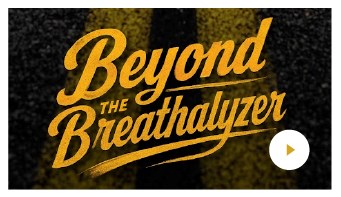Recent Blog Posts
FOURTH AMENDMENT FRIDAY FUNDAMENTALS - CASE #4: Rodriguez v. US
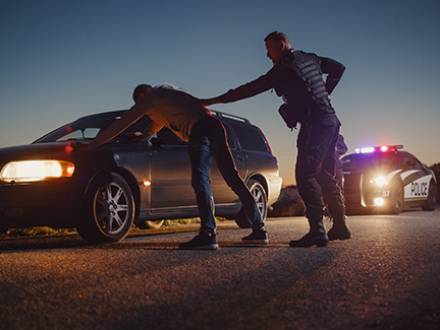 It’s the 4th Fourth Amendment Friday Fundamentals and time, I believe, for a quick synopsis of the cases covered so far.
It’s the 4th Fourth Amendment Friday Fundamentals and time, I believe, for a quick synopsis of the cases covered so far.
I started with Delaware v. Prouse, a case which significantly curtailed the ability of the police to conduct random traffic stops, requiring reasonable and articulable suspicion of criminal or illegal activity to be present for the stop to be Fourth Amendment compliant.
But how to determine reasonable suspicion, asked the lower courts. The Supremes answered with US v. Cortez, a case out of Arizona which established a totality of the circumstances approach to reviewing whether sufficient reasonable suspicion was present to justify the traffic stop. The Court emphasized that the totality of circumstances included a review of the "whole picture."
Last week, I covered Navarette v. California, a case involving anonymous 911 calls and traffic stops, including a brief history of the courts prior anonymous tip jurisprudence. In a divided decision, the Supremes found, inter alia, mere use of the 911 phone system provided indicia of reliability, and a report of a single of instance of driving deviation to be sufficient for a traffic stop.
TRIAL ADVOCACY TUESDAY TIPS AND TRICKS - CASE #3: Navarette v. California
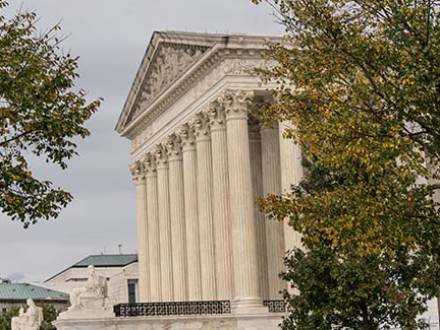 I am here with the 3rd installment of trial advocacy Tuesday - some tips and tricks for you to consider based on the most recent Fourth Amendment Friday Fundamentals case, Navarette v. California.
I am here with the 3rd installment of trial advocacy Tuesday - some tips and tricks for you to consider based on the most recent Fourth Amendment Friday Fundamentals case, Navarette v. California.
As a reminder, Navarette was a Supreme Court case where a 5-4 majority, led by Justice Thomas, found sufficient reasonable suspicion to stop a car based on an anonymous tip from a 911 caller reporting a description of the car, the car’s location, and that the car has, "run them off the road." This was held despite the complete and utter lack of any deviant driving behavior that the police themselves observed when they located the truck and followed it for a full five minutes. (Justice Thomas’ explanation for this was that drunk drivers can turn their inebriation off when the boys and girls in blue are behind them).
Seeming to fly in the face of Florida v. J.L. and other prior SCOTUS cases requiring corroboration and predictive details in order to determine the reliability of the anonymous tip, Navarette is still the prevailing SCOTUS decision in this area. But I was taught in law school that if the law is against you, argue the facts. If the facts are against you, argue the law. If the law AND the facts are against you, pound the table and shout at the top of your lungs. Orrrrr……distinguish.
FOURTH AMENDMENT FRIDAY FUNDAMENTALS - CASE #3: Navarette v. California
 I had previously selected Navarette v. California for this week, and I believe it goes nicely here because of its position in the line of cases we have reviewed so far. First, we had Prouse, which gave us the holding that the Fourth Amendment prohibits arbitrary or random car stops. Then we had Cortez, which held that the Fourth Amendment required traffic stops to be based on particularized reasonable suspicion as determined from a review of the totality of the circumstances. Navarette is a traffic stop case from 2014, where the Court reviews its prior anonymous tip jurisprudence to determine whether an anonymous 911 call can justify a traffic stop.
I had previously selected Navarette v. California for this week, and I believe it goes nicely here because of its position in the line of cases we have reviewed so far. First, we had Prouse, which gave us the holding that the Fourth Amendment prohibits arbitrary or random car stops. Then we had Cortez, which held that the Fourth Amendment required traffic stops to be based on particularized reasonable suspicion as determined from a review of the totality of the circumstances. Navarette is a traffic stop case from 2014, where the Court reviews its prior anonymous tip jurisprudence to determine whether an anonymous 911 call can justify a traffic stop.
Before I get into the specifics of the case, a review of the prior anonymous tip cases might be helpful:
I am going to start with Illinois v. Gates, 462 U.S. 213 (1983), where an anonymous letter was sent to the police, tipping them off about a drug operation. At that time, courts were operating under what was known as the "Aguilar-Spinelli" approach – what the Gates Court called a "rigid ‘two-pronged’ test." This test was rejected and replaced with the totality of the circumstances review, where reliability of the anonymous information is judged by detail, corroboration, and common sense inference. Of particular note is the "significant value" that the Gates Court gave to the corroborative efforts of the police officers involved.
TRIAL ADVOCACY TUESDAY TIPS AND TRICKS - CASE #2: U.S. v. Cortez
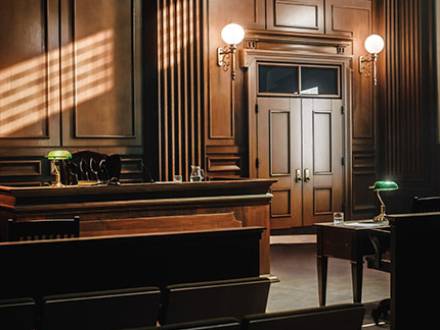 I am pleased to present our second installment of Trial Advocacy Tuesday where we take a brief look at how to use the Fourth Amendment Friday Fundamentals case from last week.
I am pleased to present our second installment of Trial Advocacy Tuesday where we take a brief look at how to use the Fourth Amendment Friday Fundamentals case from last week.
Since Cortez gives us the "totality of the circumstances" umbrella, let’s use that to our advantage. Here are three trial advocacy tips and tricks on how to make US v. Cortez work for you and your clients in the courtroom:
Advocacy Tip #1: Dissect the "Totality of the Circumstances" - Pre-Trial Motion to Suppress
Remember that Cortez requires suspicion be based on specific and articulable facts that, when taken together, indicate possible criminal activity. Many DUI stops and detentions are built on innocuous facts that the police stack on top of each other (such as time of night, leaving an establishment that (GASP!) serves alcohol, driving slightly under the speed limit, etc).
The way to defeat this is to point out everything that the officer could have seen, but did not see. Take the driving behavior, as an example. Break down every driving move that client made. If he or she drove five blocks without a single violation, ask that officer about each block. If there were three stop signs, or traffic signals that the client navigated properly, ask about each one. Ask about every successful lane change. In short, if the officer had an opportunity to see driving behavior that indicates impairment, AND DID NOT SEE IT, that is something that should be consiI am pleased to present our second installment of Trial Advocacy Tuesday where we take a brief look at how to use the Fourth Amendment Friday Fundamentals case from last week.
FOURTH AMENDMENT FRIDAY FUNDAMENTALS - CASE #2: U.S. v. Cortez
 I am pleased to present our second case for Fourth Amendment Friday Fundamentals, where we take a brief look at landmark cases involving Fourth Amendment decisions that impact our work as defenders of justice for those citizens accused of DUI/DWI and traffic offenses across the country.
I am pleased to present our second case for Fourth Amendment Friday Fundamentals, where we take a brief look at landmark cases involving Fourth Amendment decisions that impact our work as defenders of justice for those citizens accused of DUI/DWI and traffic offenses across the country.
Today we are looking at US v. Cortez, 449 U.S. 411 (1981). Where Delaware v. Prouse, 440 U.S. 648 (1979) (our case from last week) gave us the requirement that there must be articulable reasonable suspicion for a vehicle to be stopped, Cortez addressed "the elusive concept of what cause is sufficient to authorize the police to stop a person."
Cortez involved a case where Border Patrol agents stopped a pickup truck they suspected of illegally transporting a large group of individuals into the United States from Mexico. The suspicion was based, inter alia, on location, time of day, and the make and model of the pickup. Cortez, the driver and owner of the pickup, challenged the basis of the stop, arguing that the officers lacked objective indications that he was engaged in criminal activity. The trial court denied Cortez’s motion to suppress, but the Ninth Circuit reversed, finding "far too many innocent inferences" to justify the stop.
TRIAL ADVOCACY TUESDAY TIPS AND TRICKS - Case #1 - Delaware v. Prouse
 I am pleased to present the first installment of Trial Advocacy Tuesday, where we take a brief look at how to use the Fourth Amendment Friday Fundamentals cases from last week.
I am pleased to present the first installment of Trial Advocacy Tuesday, where we take a brief look at how to use the Fourth Amendment Friday Fundamentals cases from last week.
Here are three trial advocacy tips and tricks on how to make Delaware v. Prouse work for you and your clients in the courtroom:
Advocacy Tip #1: Pre-Trial Motions to Suppress - Privacy Doesn’t End at the Curb
Your car isn’t a Constitutional black hole. In Prouse, the Court stressed that citizens don’t shed their privacy rights when they leave their home and enter a vehicle. Push back against the prosecutor narrative that the regulation of cars erases fundamental rights, and remind the trial court that anytime he or she gets in the car, "the Constitution rides shotgun."
Advocacy Tip #2: Translate Balancing Doctrine Into a Human Story - Every Trial Needs a VILLAIN
The Court in Prouse weighed the intrusion of suspicionless stops against government interest and found the balance tipped in favor of individual liberty. You can use this type of "test" to create your client’s story - describe the anxiety, the fear, the humiliation of being stopped on a whim, and remember that jurors respond to dignity and fairness. Make the villain unchecked government power, the client is the ordinary motorist "damsel in distress" and the jury is the hero, waving a copy of the Bill of Rights as it delivers a Not Guilty verdict.
FOURTH AMENDMENT FRIDAY FUNDAMENTALS - CASE #1: Delaware v. Prouse
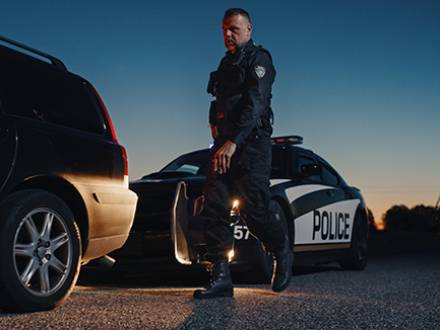 I am pleased to present the first installment of Fourth Amendment Friday Fundamentals, where we take a brief look at landmark cases involving Fourth Amendment decisions that impact our work as defenders of justice for those citizens accused of DUI/DWI and traffic offenses across the country.
I am pleased to present the first installment of Fourth Amendment Friday Fundamentals, where we take a brief look at landmark cases involving Fourth Amendment decisions that impact our work as defenders of justice for those citizens accused of DUI/DWI and traffic offenses across the country.
Our first case is Delaware v. Prouse, 440 U.S. 648 (1979). In that case, an officer stopped a vehicle and seized marijuana he observed in plain view inside the car. He later testified at a suppression hearing that he observed neither a traffic violation nor an equipment issue nor any suspicious activity, but rather made the stop to check the license and registration. The Supreme Court held that unless there is AT LEAST an articulable and reasonable suspicion that a motorist is unlicensed or that the automobile is not registered, such a stop violates the Fourth Amendment.
The Court wrote: "An individual operating or traveling in an automobile does not lose all reasonable expectation of privacy simply because the automobile and its use are subject to government regulation. … Were the individual subject to unfettered governmental intrusion every time he entered an automobile, the security guaranteed bay the Fourth Amendment would be seriously circumscribed. As Terry v. Ohio recognized, people are not shorn of all Fourth Amendment protection when they step from their homes onto the public sidewalks. Nor are they shorn of those interests when they step from the sidewalks into their automobiles." Id., 440 U.S. 663.
County Run Mugshot Lookup Ruled Unconstitutional
In September of 2024, the Ninth Circuit ended a longstanding practice of many law enforcement agencies in Arizona—posting mugshots online. Previously, many counties posted mugshots online, along with identifying information such as name, height, weight, etc. Often, the mugshots would be posted with the list of charges for which the person was arrested. These posts harm someone’s reputation, affect their ability to get jobs, cause embarrassment and taint the potential jury pool.
The Ninth Circuit has ruled this practice unconstitutional in a recent case, Houston v. Maricopa County of Arizona. In Houston, the Court reviewed Maricopa County’s process of posting mugshots with identifying information and leaving it up for three days after an arrest, even if the person was released before then. In this case, Houston was arrested and never prosecuted, but his image, charges, and more were posted online for 72 hours. That was long enough for at least one third party website to capture and repost the information.
8 Things That Can Go Wrong When the Police Draw Your Blood
Often, people who have been charged with DUI believe that the blood test result is infallible. There are many things that can impact a person’s blood test result. The following are just a few examples of things that can go wrong when the police draw your blood:
-
The officer may not be qualified to draw your blood.
In Arizona, police officers can be qualified phlebotomists. But not every officer can draw your blood. The Governor’s Office of Highway Safety sets requirements for officers, which includes an original training and refresher trainings every two years. The Behan Law Group has successfully fought for the dismissal of DUI charges when we proved that a police officer had been skipping these required refresher trainings but was still drawing blood for evidentiary use in a DUI case.
Can You Be Charged with DUI When You Were Not Actually Driving?
 By Changfang Xu, Esq.
By Changfang Xu, Esq.
For many people, DUI means "driving" under the influence, just as the name implies. But can a person be charged with DUI when he or she was not actually driving? The answer is yes. Almost all states have statutes providing that it is also unlawful for a person to be in "actual physical control" of a vehicle while under the influence.
So what does actual physical control mean? In State v. Love, 182 Ariz. 324 (Ariz. 1995), the Arizona Supreme Court adopted what is known as a " totality approach " in determining whether a defendant is in actual physical control of the vehicle. It concluded that a person was in actual physical control when, under the totality of the facts, the person "posed a threat to the public by the exercise of present or imminent control" over a vehicle while impaired. Factors to be considered in any given case might include: whether the vehicle was running or the ignition was on; where the key was located; where and in what position the driver was found in the vehicle; whether the person was awake or asleep; if the vehicle's headlights were on; where the vehicle was stopped (in the road or legally parked); whether the driver had voluntarily pulled off the road; time of day and weather conditions; if the heater or air conditioner was on; whether the windows were up or down; and any explanation of the circumstances advanced by the defense.




